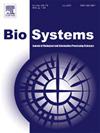Techno-ethical concerns related to genetic sequencing reports
IF 2
4区 生物学
Q2 BIOLOGY
引用次数: 0
Abstract
Recombinant DNA technologies of the current era, most of which are comparable to past works of science fiction, have had diverse and significant impacts on social life. Among them, genetic sequencing deserves particular attention. The widespread use of genetic testing has raised numerous concerns regarding autonomy, confidentiality and privacy. In this context, the proliferation of ‘gene for X’ reports influences debates about the potentially beneficial or detrimental uses of genetics. While several studies have reported concerns related to the collection, storage and use of genetic data, few have considered the technical shortcomings that can affect the reliability of interpretation of sequencing data. In this essay, we will cover some of the current practices of genetic testing and safety aspects of DNA data. To evaluate the reliability of DNA data we will raise the question whether an ‘overestimation’ of researchers' results might reflect an ‘underestimation’ of our genetic make-up in terms of the limitations of the parameters necessary for the correct interpretation of genomic DNA. Following that question we will highlight the responsibility of researchers for proper science communication to avoid misleading information about genetic sequencing data.
与基因测序报告有关的技术伦理问题。
当今时代的 DNA 重组技术(其中大部分堪比过去的科幻小说)对社会生活产生了多种多样的重大影响。其中,基因测序尤其值得关注。基因检测的广泛使用引起了人们对自主权、保密性和隐私权的诸多关注。在这种情况下,"X 基因 "报告的激增影响了关于基因的潜在有益或有害用途的辩论。虽然有几项研究报告了与基因数据的收集、储存和使用有关的问题,但很少有人考虑到可能影响测序数据解读可靠性的技术缺陷。在本文中,我们将介绍目前基因检测的一些做法和 DNA 数据的安全问题。为了评估 DNA 数据的可靠性,我们将提出这样一个问题:研究人员对结果的 "高估 "是否反映了我们对基因构成的 "低估",即正确解读基因组 DNA 所需的参数的局限性。在这个问题之后,我们将强调研究人员有责任进行正确的科学交流,以避免基因测序数据信息的误导性。
本文章由计算机程序翻译,如有差异,请以英文原文为准。
求助全文
约1分钟内获得全文
求助全文
来源期刊

Biosystems
生物-生物学
CiteScore
3.70
自引率
18.80%
发文量
129
审稿时长
34 days
期刊介绍:
BioSystems encourages experimental, computational, and theoretical articles that link biology, evolutionary thinking, and the information processing sciences. The link areas form a circle that encompasses the fundamental nature of biological information processing, computational modeling of complex biological systems, evolutionary models of computation, the application of biological principles to the design of novel computing systems, and the use of biomolecular materials to synthesize artificial systems that capture essential principles of natural biological information processing.
 求助内容:
求助内容: 应助结果提醒方式:
应助结果提醒方式:


